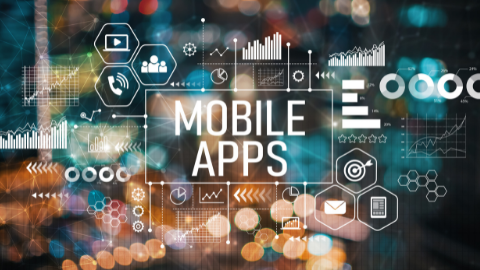To be a pioneer of educational technology, an individual must innovate and adjust to the dynamic environment. With their flexible and dynamic characteristics, e-learning apps soon become essential tools for instructors and learners. 93% of learners say that online resources improved their learning experience.
It is necessary to undergo app beta testing, which will allow improving educational software, making it practical and successful. So, let’s learn more about it in the article below.
What is app beta testing?
All software educational apps must be beta-tested throughout the online learning platform development lifecycle. It refers to the ‘beta’ product of software made available for limited testing purposes before we launch it. During this stage, developers can find and eliminate issues and get user feedback for e-learning apps to add all final updates before release.
Beta testing for educational applications is more than just finding bugs. It analyzes the application’s educational efficacy and technical features compared to e-learning. Testers test the application’s efficiency in terms of service delivery, engaging learners, and promoting effective learning.
Types of e-learning application testing
Ensuring the efficiency of e-learning apps during app beta testing requires several types of testing:
- Functionality testing: This testing ensures that every feature and function works correctly. Testers consider the app’s ability to deliver content, act in response to user activities, and provide an accessible learning environment.
- Compatibility testing: Compatibility testing refers to the software’s ability to work with other devices and various operating systems. It is also essential to accommodate the varying devices that the learners use.
- Performance testing: Subject the app to various environments and see how quickly it reacts and its overall performance. This is especially important for users with different connection speeds to ensure smooth learning.
- Usability testing: Usability testing focuses on how the user interacts with the interface and the whole platform. Testers evaluate the ease of access, completion, and navigation through a user interface.
Improving educational software with beta testing
Pedagogical notions and technological innovations should correspond to educational software. By focusing on these critical areas, app beta testing is essential for improving educational software:
- Content relevance: Beta testers can also give useful information regarding levels of attainment on educational content with respect to the extent to which it accounts for learning objectives and its relevance.
- Interactivity: Testing interactions becomes critical to guaranteeing that the e-learning functionality provides adequate involvement, active participation, and information retention.
- Adaptability: The adaptability of the app to individual learning styles and preferences can be measured through beta testers. This will allow the user to get personalized learning.
Beta testing strategies for e-learning
To get the most out of beta testing for education apps, it’s essential to use successful beta testing strategies for e-learning:
- Early testing: Start beta testing as early in the development process as possible. This will enable you to detect problems at their early stages and, therefore, before they become complicated.
- Diverse testers: The idea is to engage beta testers from different areas to assess an app from all potential points of view to be comprehensive.
- Feedback channels: Collaborate with testers by asking them to speak directly before developers, discuss on forums, and fill out questionnaires so their views can be aired.
- Iterative testing: Repeat the use of software on various successive betas accompanied by comments and suggestions on how to improve it after each run.
Improving Educational app user experience with beta testing
User accessibility is critical for the success of educational apps. Enjoyable user experience leads to higher user engagement and more effective e-learning app improvement. Developers can improve the user experience through beta testing by fixing issues with:
- Intuitiveness: Use the application conveniently, search information when required, and score quizzes.
- Accessibility: To ensure that the software is accessible to people with disabilities and their particular learning requirements are addressed.
- Engagement: Check whether the app features gamification, interactivity, and multimedia elements to guarantee user engagement.
- Performance: Identify and eliminate all performance issues that negatively affect the overall user experience.
Conclusion
Using beta testers to perfect e-learning apps is a good option for quality in the information era. By obtaining feedback and thoroughly testing their applications, developers will be able to adjust to the changing requirements of teachers or students.
Technology is constantly developing in education, and beta testing apps are becoming increasingly important. Educational apps that focus on usability and seek to represent alternative views are more effective as part of the developing revolution in education.








